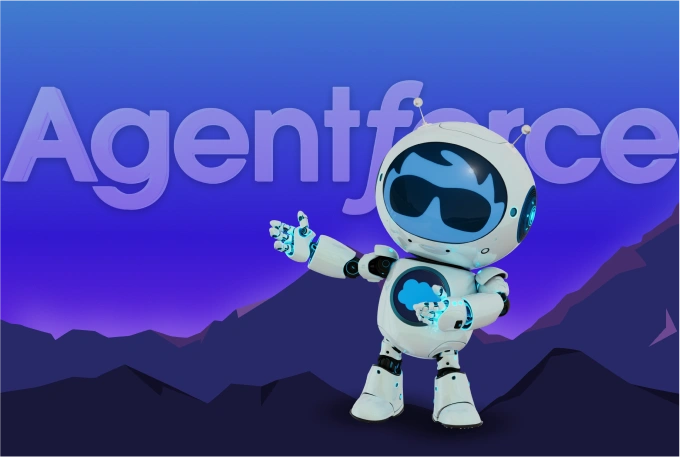Agentforce is Salesforce’s AI play. In common with almost every large and small software player, Salesforce is doubling and tripling down on AI. Fortunately, this time, unlike previous overhyped tech capabilities, my assessment is that the transformational promise is very real.
For marketers, Agentforce offers significant capability enhancements beyond what can be achieved with separate Large Language Models such as ChatGTP and Grok.
Even if you don’t run Salesforce, all marketers should be understanding and embracing autonomous AI agents, digital workers, to streamline processes, enhance personalization, and drive efficiency.
AI agents, from Salesforce and other Martech companies, are now delivering real business benefits to marketers.
Campaign automation and optimization: Agentforce automates the full campaign lifecycle, from generating briefs and audience segments to creating content and end-to-end customer journeys. The promised payoff is faster campaign execution and higher ROI.
Genuine (finally) personalized engagement: by integrating with the Salesforce Customer 360 and Data Cloud products (for those who have their data act somewhat together, if not altogether), Agentforce agents access real-time data to deliver focused communications across email, SMS, web, and mobile channels. If executed effectively, this moves marketers closer to our long-sought after goal of genuinely personalised content that boosts engagement, conversion rates and loyalty.
24/7 customer interaction: Agentforce enables two-way, conversational marketing by embedding agents in channels like email, SMS, and web, transforming “do-not-reply” messages into dynamic interactions. Again, if the execution is superior, these agents operate around the clock, enhancing satisfaction and reducing churn.
Data insights: leveraging the Salesforce tools Data Cloud and Retrieval Augmented Generation (RAG), Agentforce agents pull insights from structured and unstructured data (e.g., PDFs, videos, CRM data) to inform marketing strategies. They analyze historical and real-time data to identify trends, predict customer behavior, and suggest actionable recommendations, such as targeting at-risk customers to increase loyalty. These capabilities have long been promised by the industry’s Martech vendors and now we are closer than ever before to realising them.
Cross functional collaboration: Agentforce integrates with Salesforce’s Sales Cloud, Service Cloud, and Slack, aligning marketing with sales and service teams. For instance, marketing agents can share campaign insights with sales teams to support upselling or cross-selling, ensuring a cohesive customer journey and maximizing revenue opportunities.
Time and cost savings: by automating repetitive tasks like content creation, segmentation, and performance monitoring, Agentforce frees marketers to focus on strategic initiatives. Salesforce claims Agentforce’s efficiency reduces operational costs while scaling marketing efforts.
Scalability and customization: Salesforce says its low-code Agent Builder allows marketers to customize prebuilt agents or create new ones tailored to specific goals, industries, or use cases using tools like Flows and Prompt Builder. This flexibility ensures Agentforce scales with business needs, from small teams to large companies
Enhanced security and compliance: Salesforce’s Einstein Trust Layer ensures data privacy with features like zero data retention, toxicity detection, and audit trails, allowing marketers to deploy AI confidently while adhering to security and regulatory policies.
Improved content performance: Agentforce agents can A/B test content to recommend the most effective versions and optimize marketing materials for better search rankings and engagement.
Event and appointment management: Agents automate event logistics, such as sending details, booking sessions, and conducting surveys, or schedule appointments based on customer history, streamlining personalized marketing efforts and improving customer experiences.
Real-world impact: Salesforce cites reference customers who assert that Agentforce is reducing customer inquiry response times by nearly 50% during peak seasons, demonstrating the ability to handle high-volume marketing tasks efficiently.
In summary, Agentforce has the potential to transform marketing by automating workflows, personalizing customer interactions, and providing actionable insights, all while ensuring scalability, security, and alignment with our broader business goals.
The challenge, as always with sophisticated, potentially complex marketing tech, is execution and for that we need not only smart AI but also smart, tech-literate marketers.



Leave a Reply